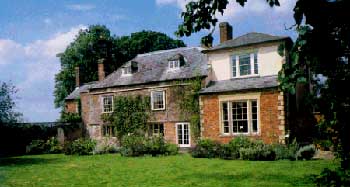
MFH Home
Family Trees
Records
Wills
MIs
Studies
Memories
People
Places
Related Families
Odds & Ends
Mail David
Education
of a Yeoman Family: A Social Study
The wills of all
those MAYs who died while some of their children were still young reveal
that the family were keen for their children, both male and female, to
have a good education, certainly after the late seventeenth century.
Usually this was to be paid for out of the interest or profits of the said
children’s legacies, though sometimes from the residue of the personal
estate. For example, Charles MAY (1670-1714) of Basingstoke instructed his
brother, Daniel, to give £100 per annum to his widow from the profits of
the mills which his son was to inherit. This was for “the education and
bringing up my children”. Sarah MAY (1783-1829), the daughter of Thomas
MAY (1737-1800) of Brimpton was personally given £50 per annum for “her
support, maintenance and education during her minority”. The most
complete details of MAY child education that we have, come from the will
of James MAY (1728-1772) of Englefield, who died when his youngest child
had just been born and the eldest was only seventeen (all examples show
education continued until the age of twenty one). James’ daughters’
education was left to his wife, while the responsibility for his sons’
tuition was handed over to his brothers (and trustees), William, Daniel
and Thomas. He wished for his sons to be “put to school and continue
there as long as may be thought necessary, in order to teach and instruct
them, particularly in English writing and accounts, in order to fit them
for the business of mealing and farming, to which business I desire they
may be brought up”. There is no direct evidence of education in the
elder secondary branch of the family, but here the parents did not die
until their children were fully grown. All the male members of the family
could sign their names however, and there is no reason to suppose that
they were not similarly educated. Mary Anne MAY (1848-1931) described how
her father, Walter MAY (1810-1900) of Whitley Grove, and his brother,
Thomas MAY (1808-1886) of Bath attended the “excellent private school of
Dr. Benson at Hounslow”. Presumably they were boarders. At the age of
thirteen, their Brother, Edmund (1816-1893) of All Cannings was offered a
place at Eton by his brother-in-law’s uncle, the Provost, but his  parents considered him to be a little young at the time (May
1908-13). He later studied the arts at Merton College, Oxford. George
MAY (1799-1884) of Reading attended the Royal College of Surgeons in
London, and his cousin, Edward (1805-1869) of Winchester, must have been
similarly educated. James MAY (1790-1845) of Reading must, likewise, have
gained his legal training somewhere. MAY parents can thus be seen as
wishing to be the educator of
their children, as postulated by Pollock (Pollock
1983).
parents considered him to be a little young at the time (May
1908-13). He later studied the arts at Merton College, Oxford. George
MAY (1799-1884) of Reading attended the Royal College of Surgeons in
London, and his cousin, Edward (1805-1869) of Winchester, must have been
similarly educated. James MAY (1790-1845) of Reading must, likewise, have
gained his legal training somewhere. MAY parents can thus be seen as
wishing to be the educator of
their children, as postulated by Pollock (Pollock
1983).